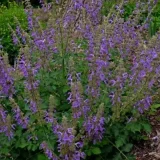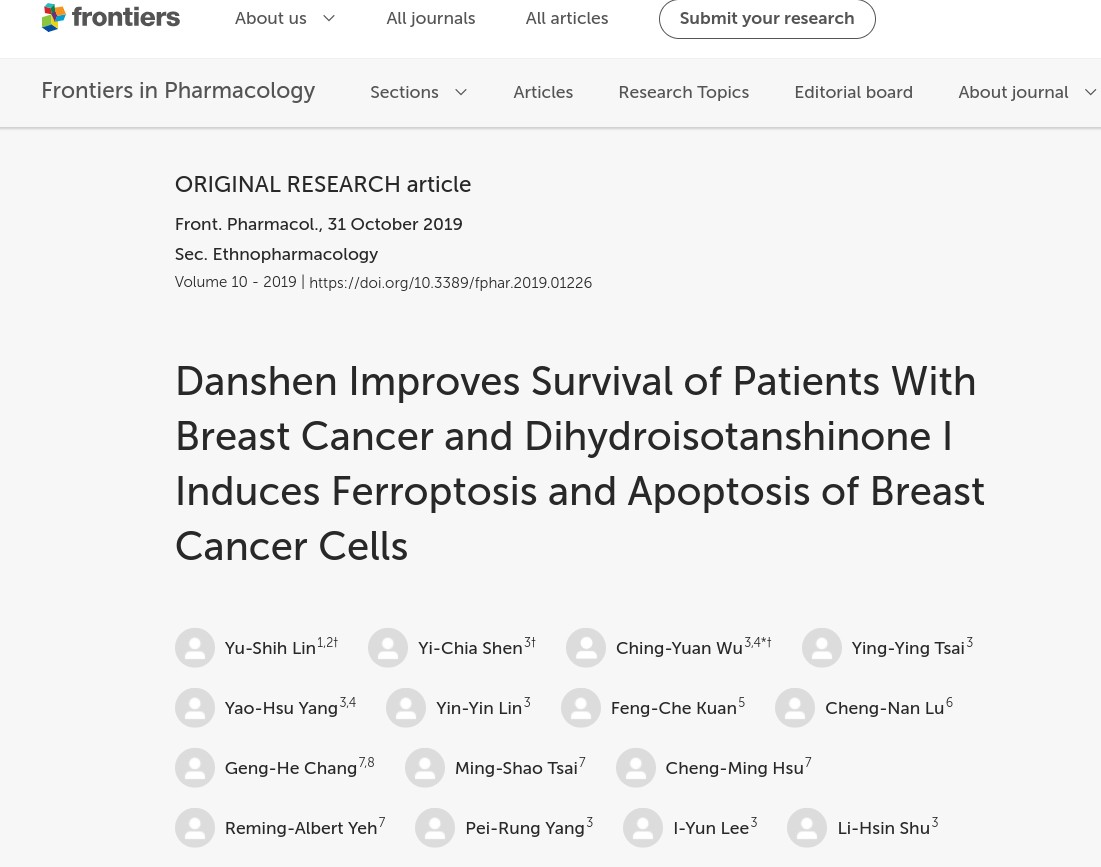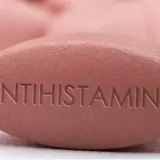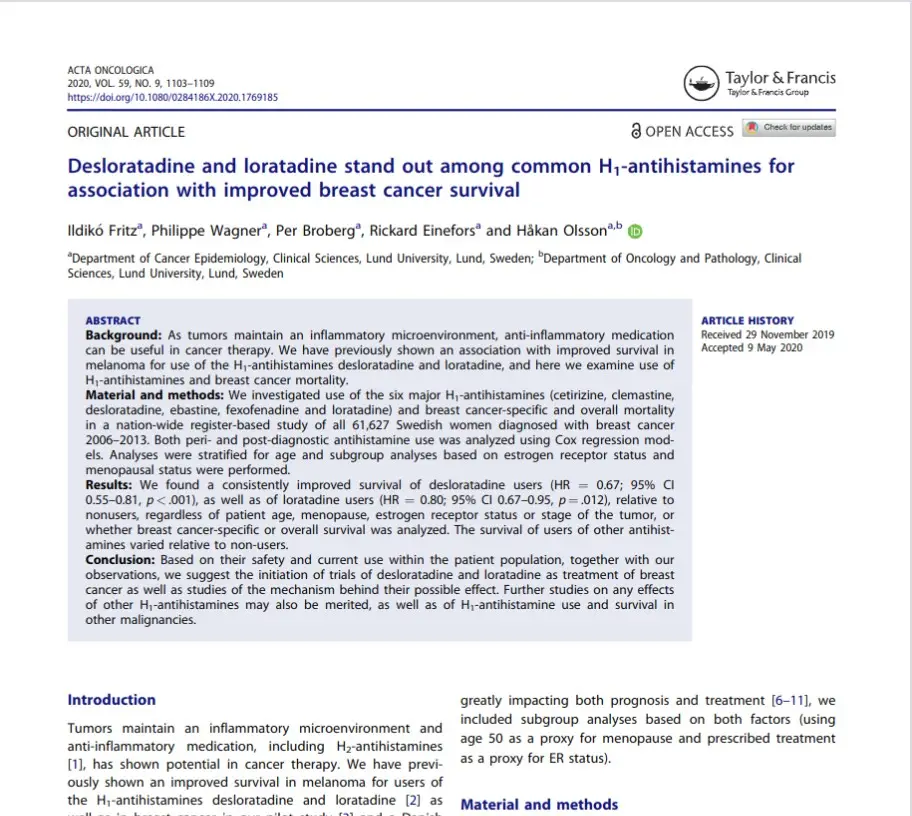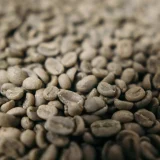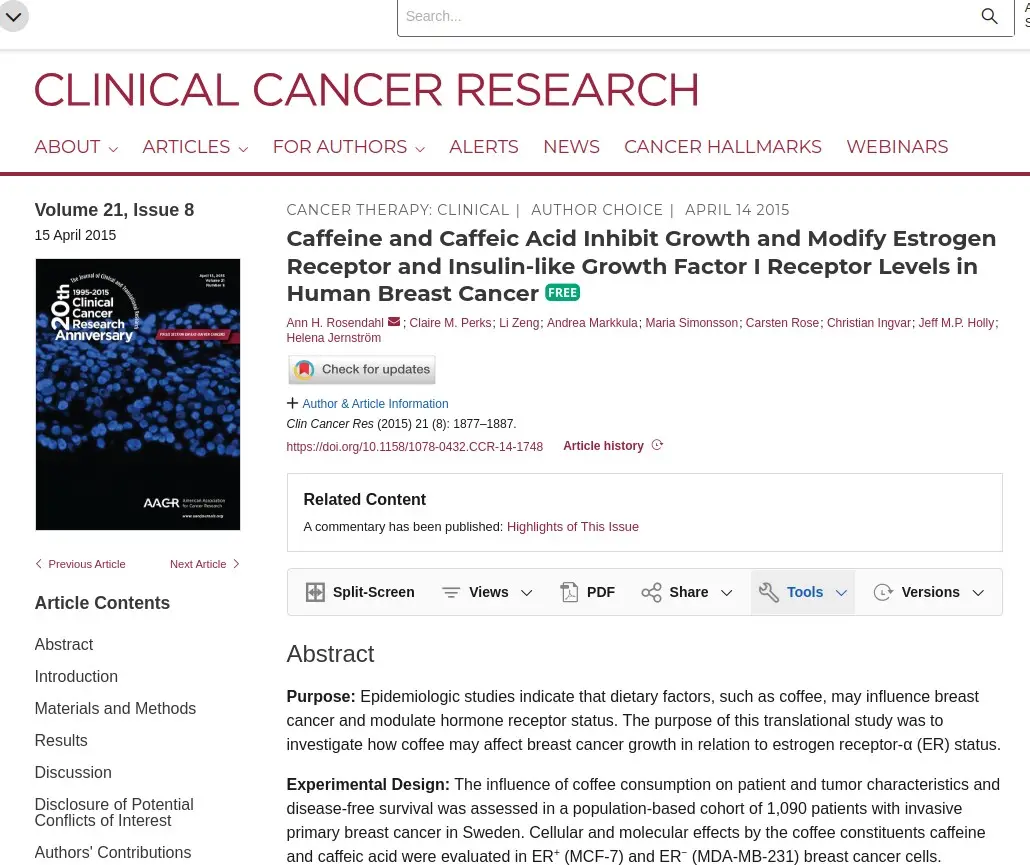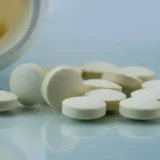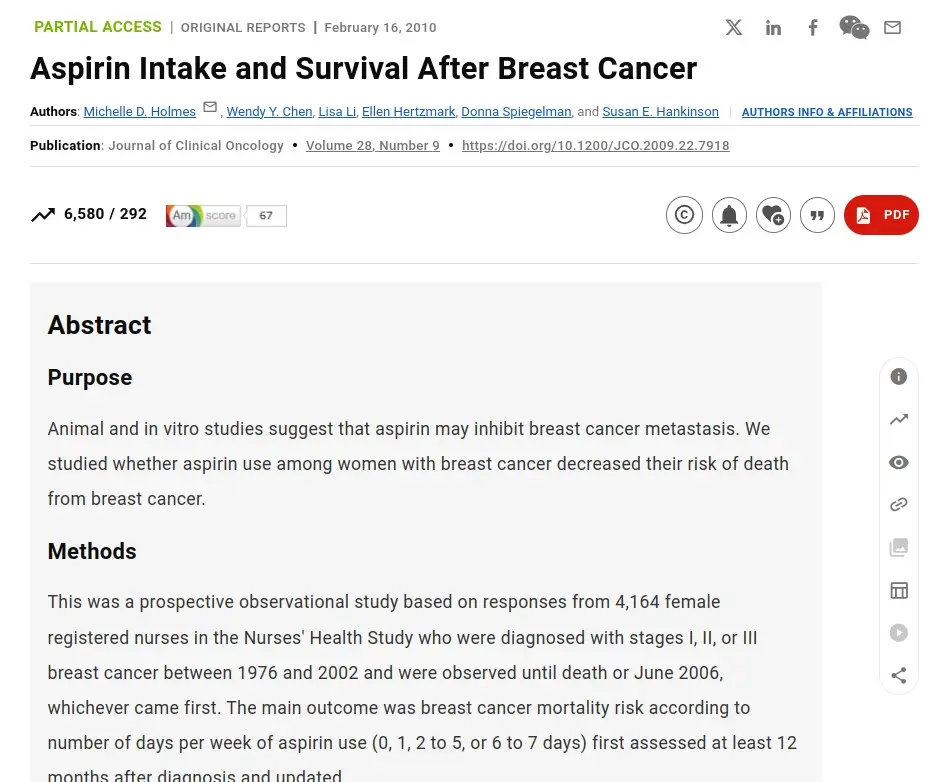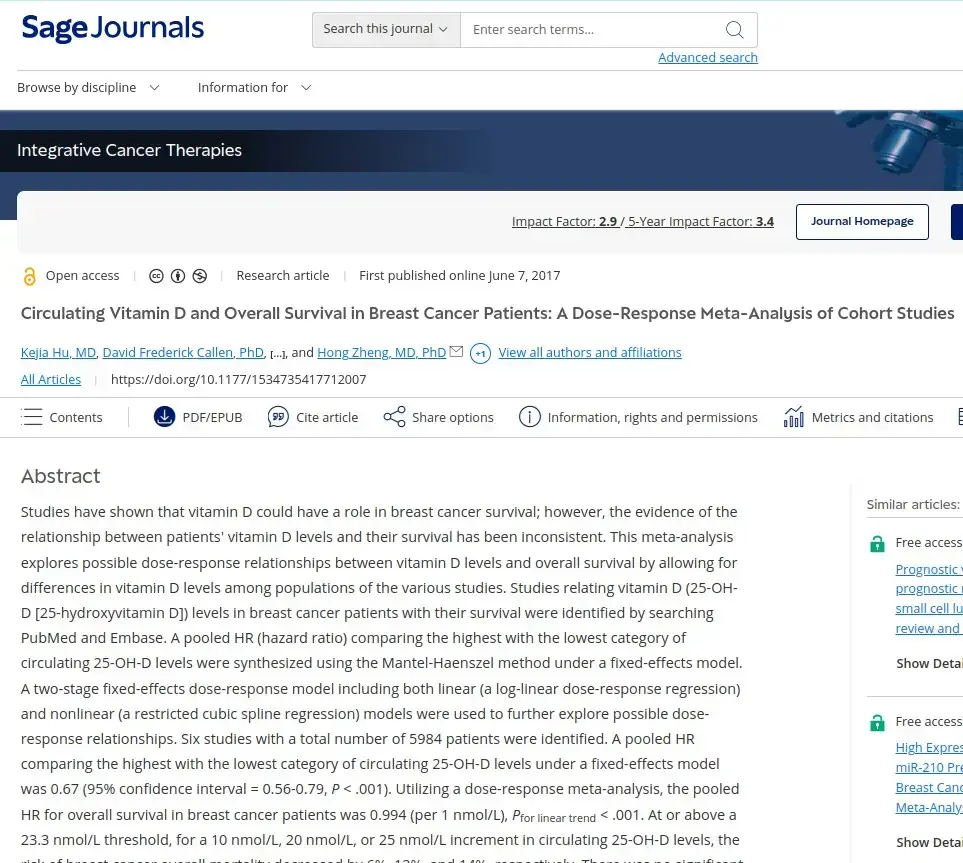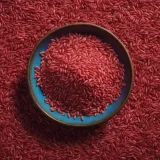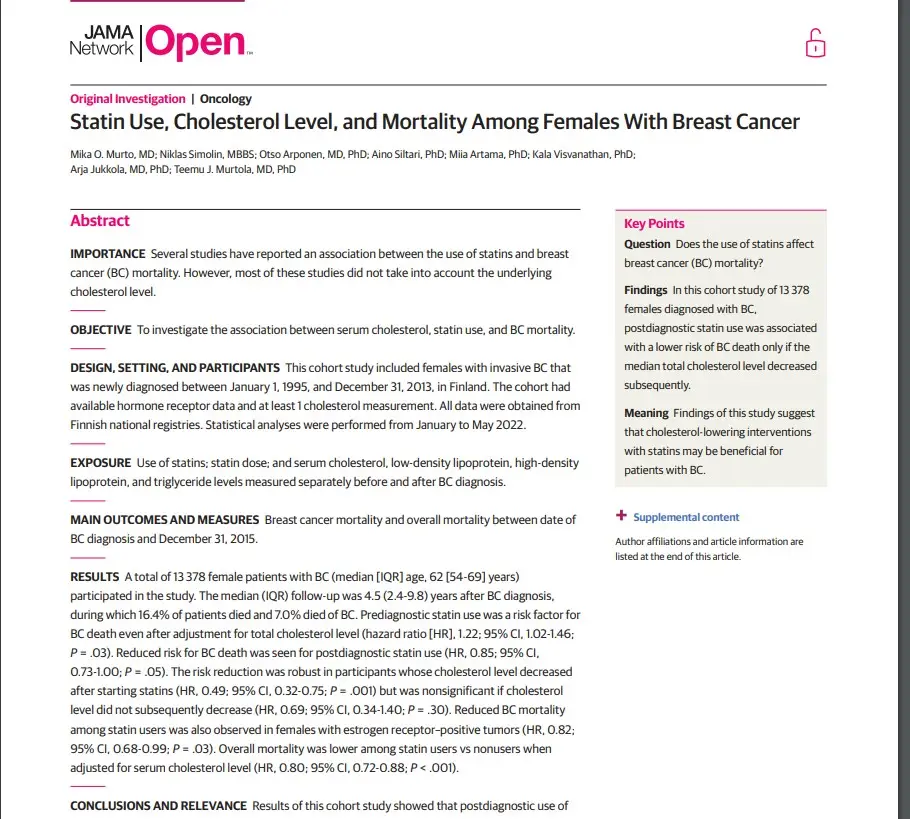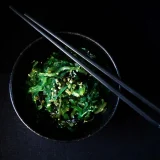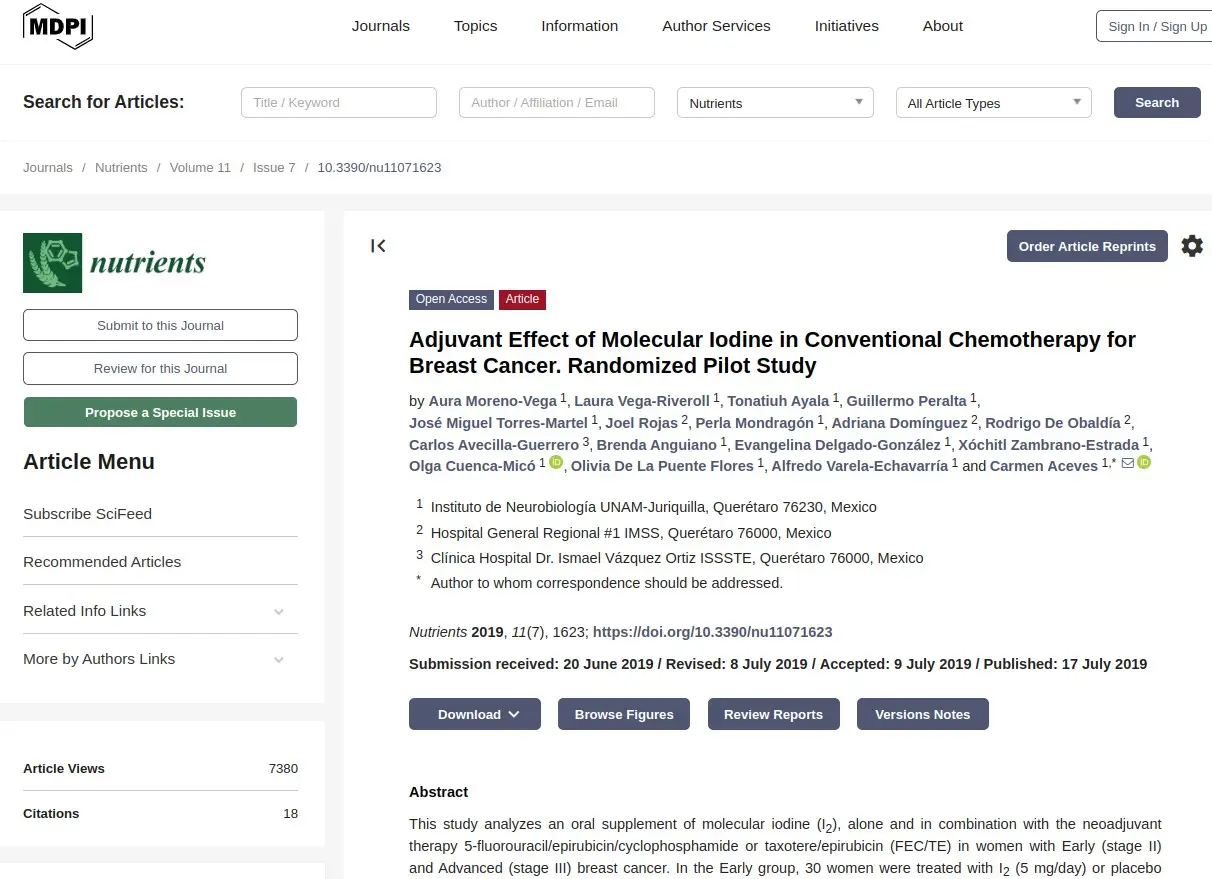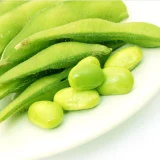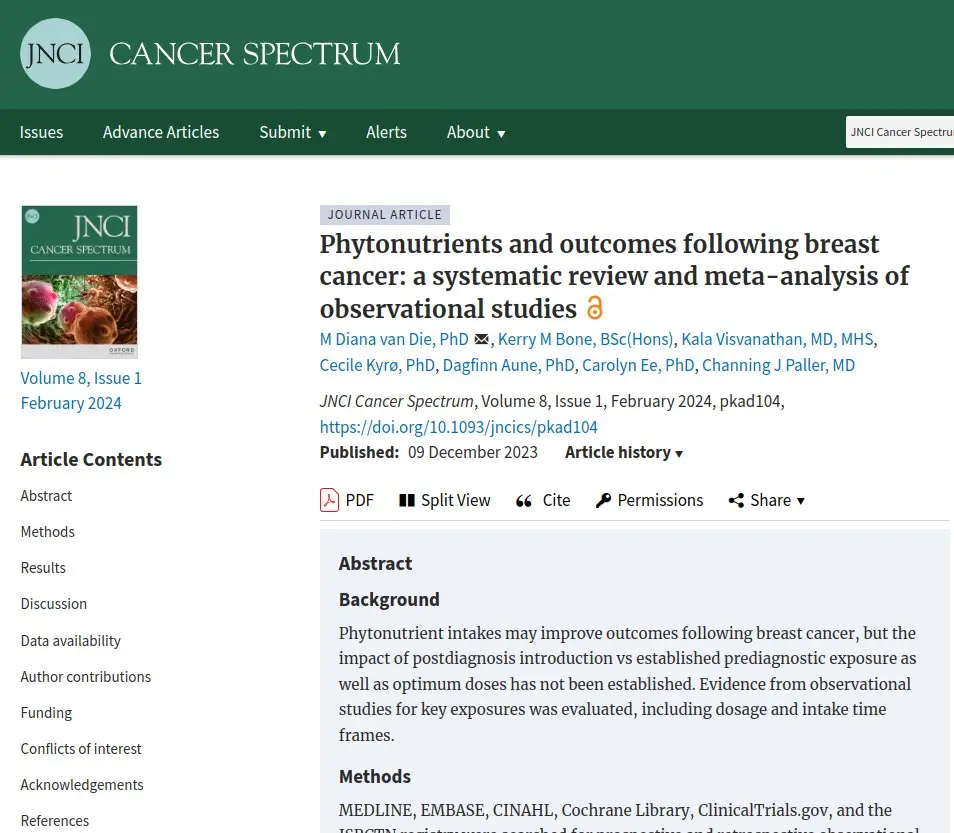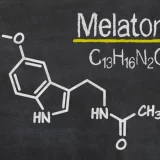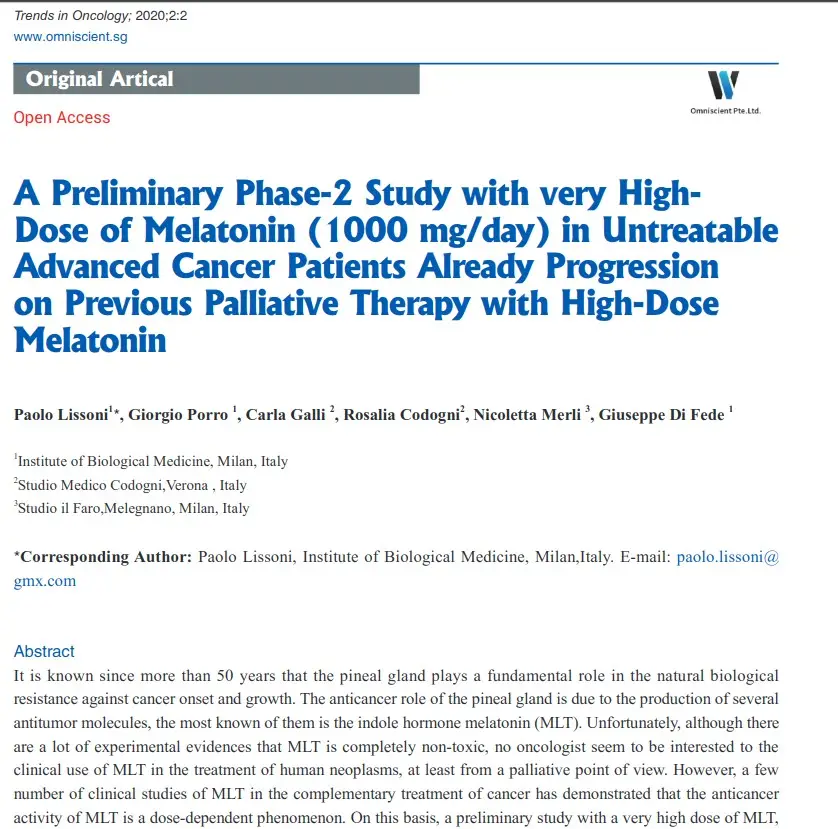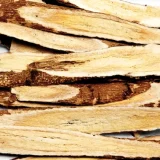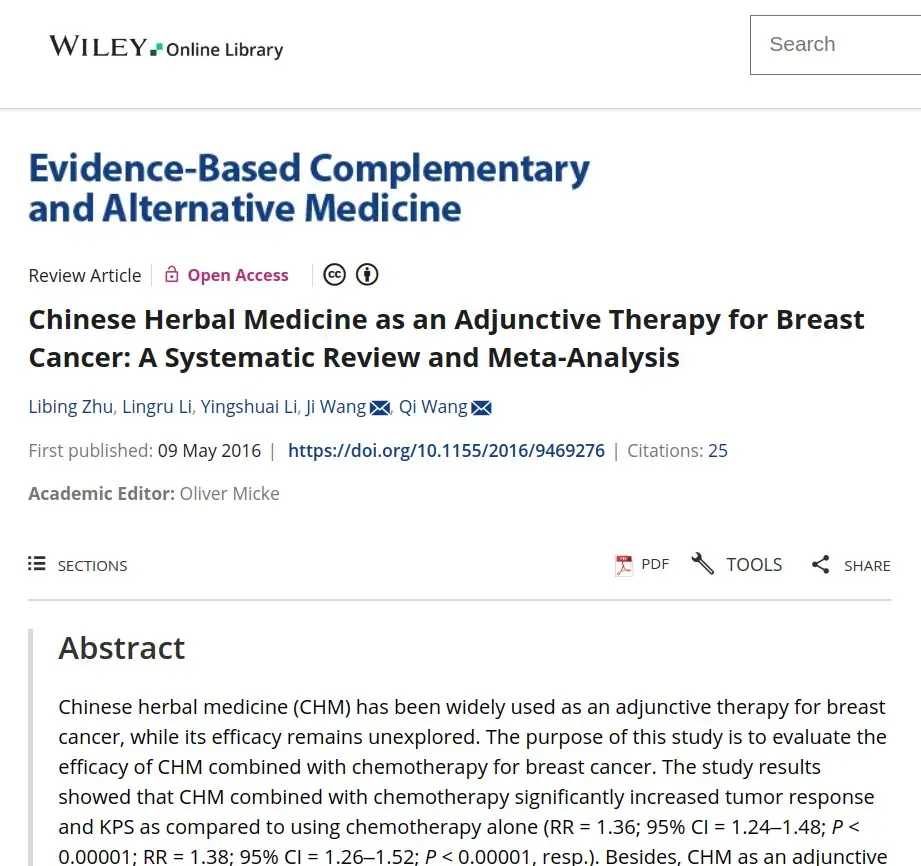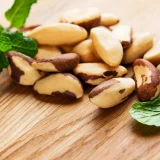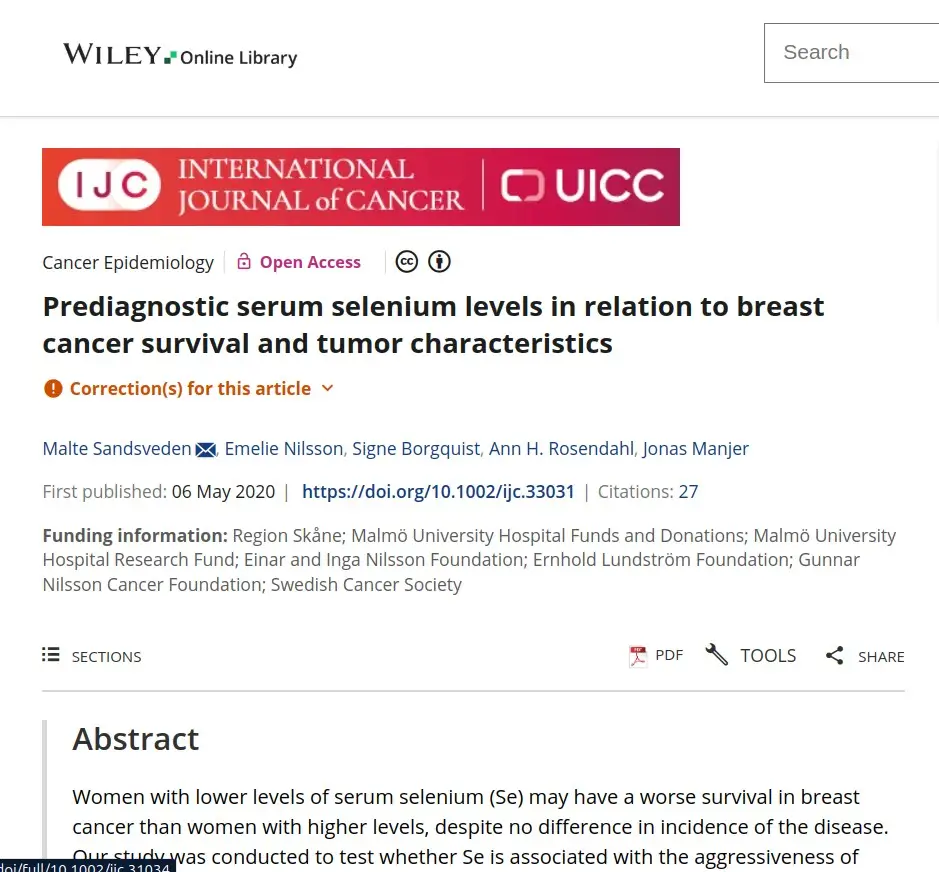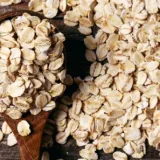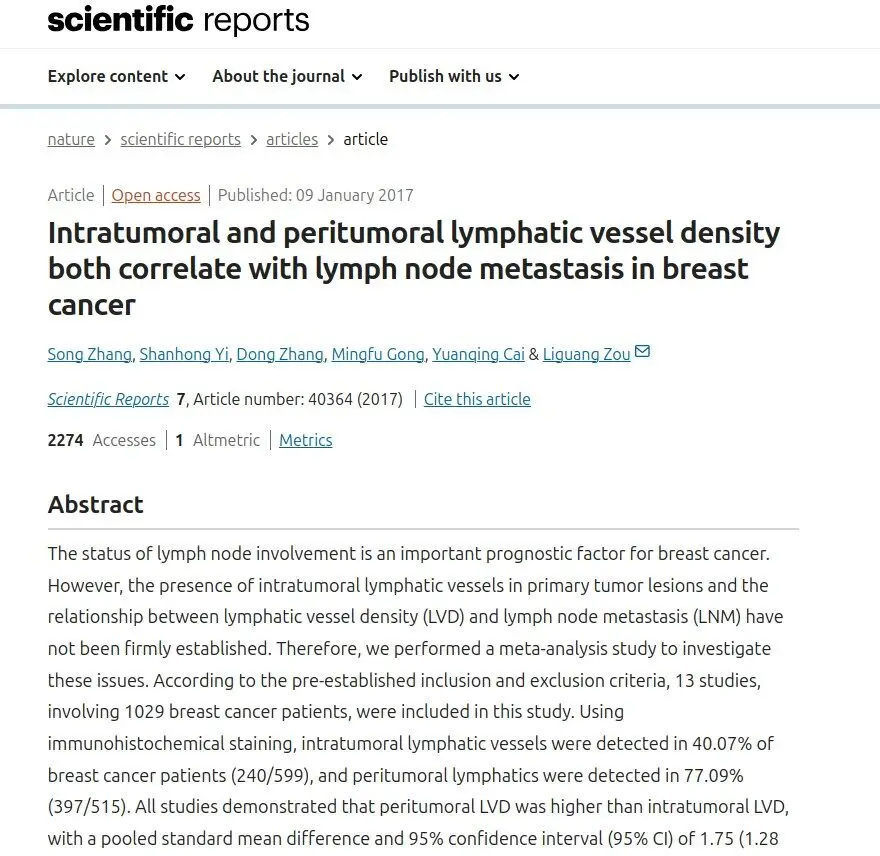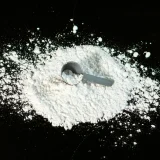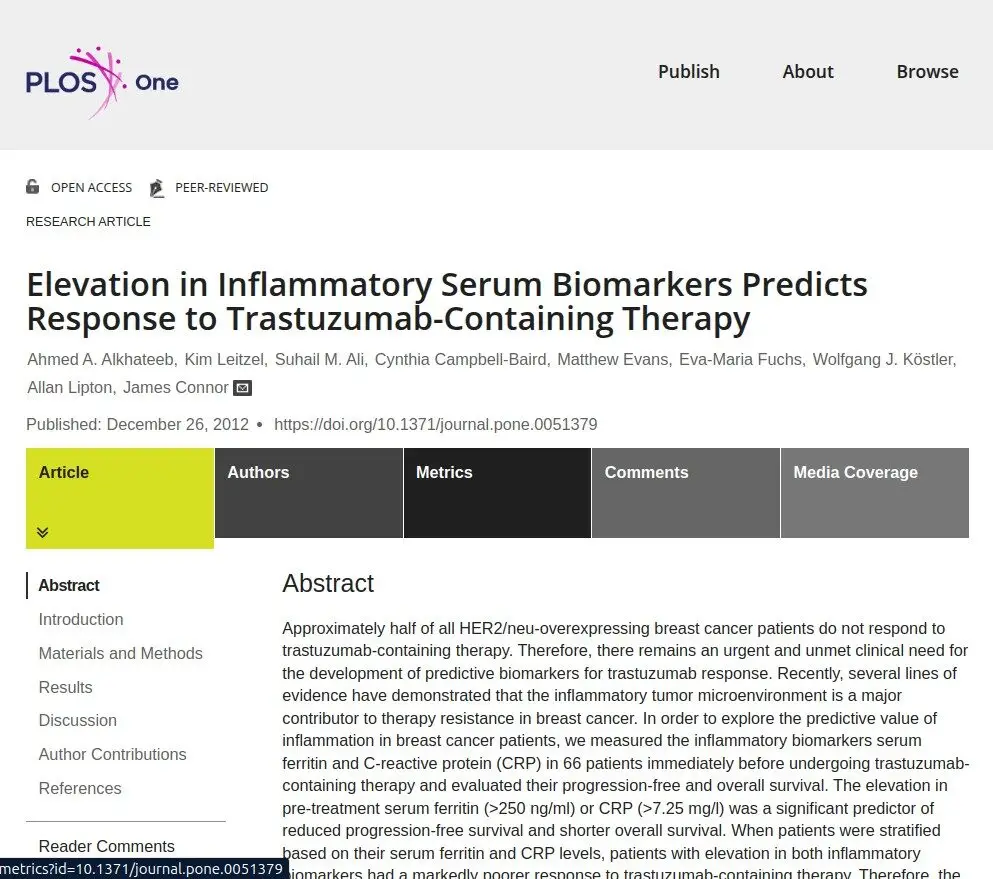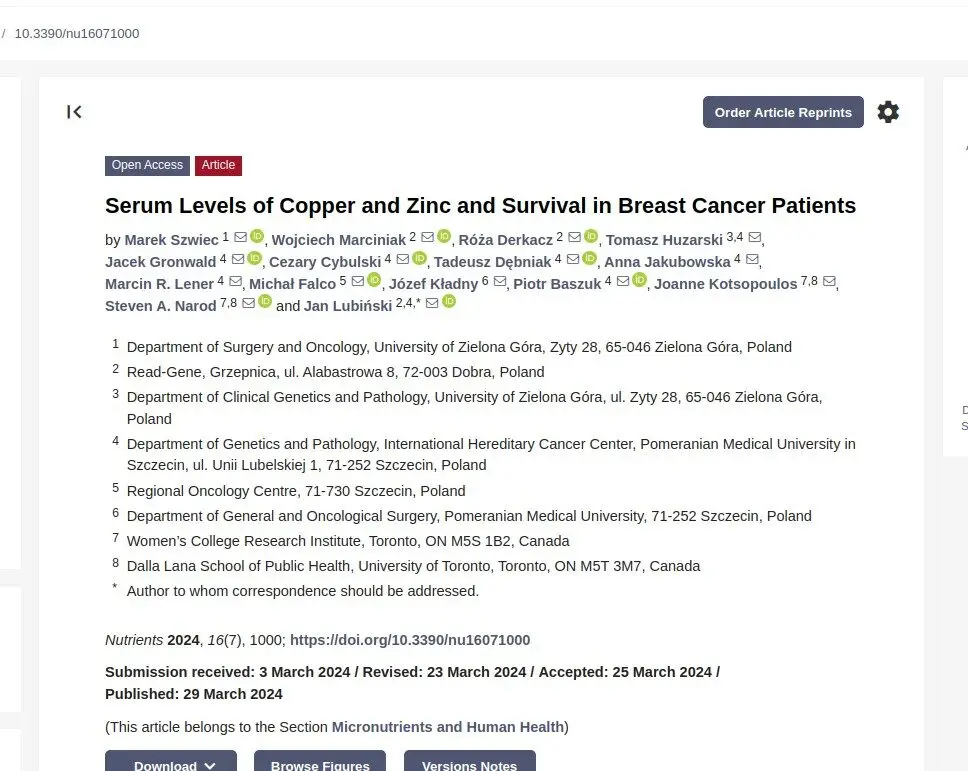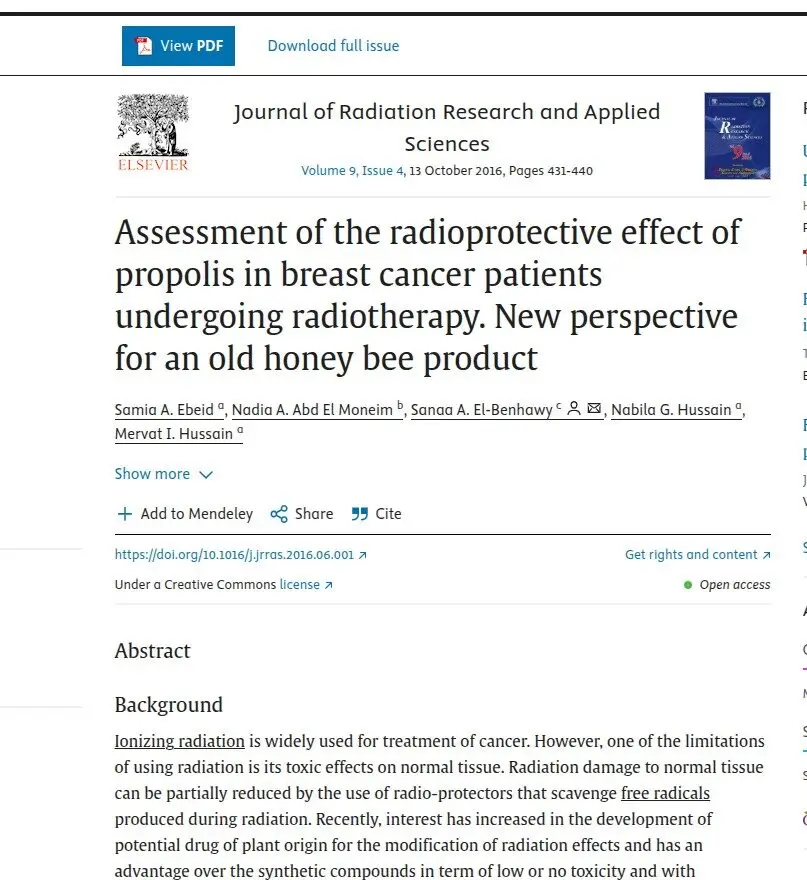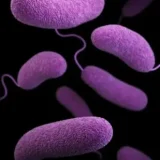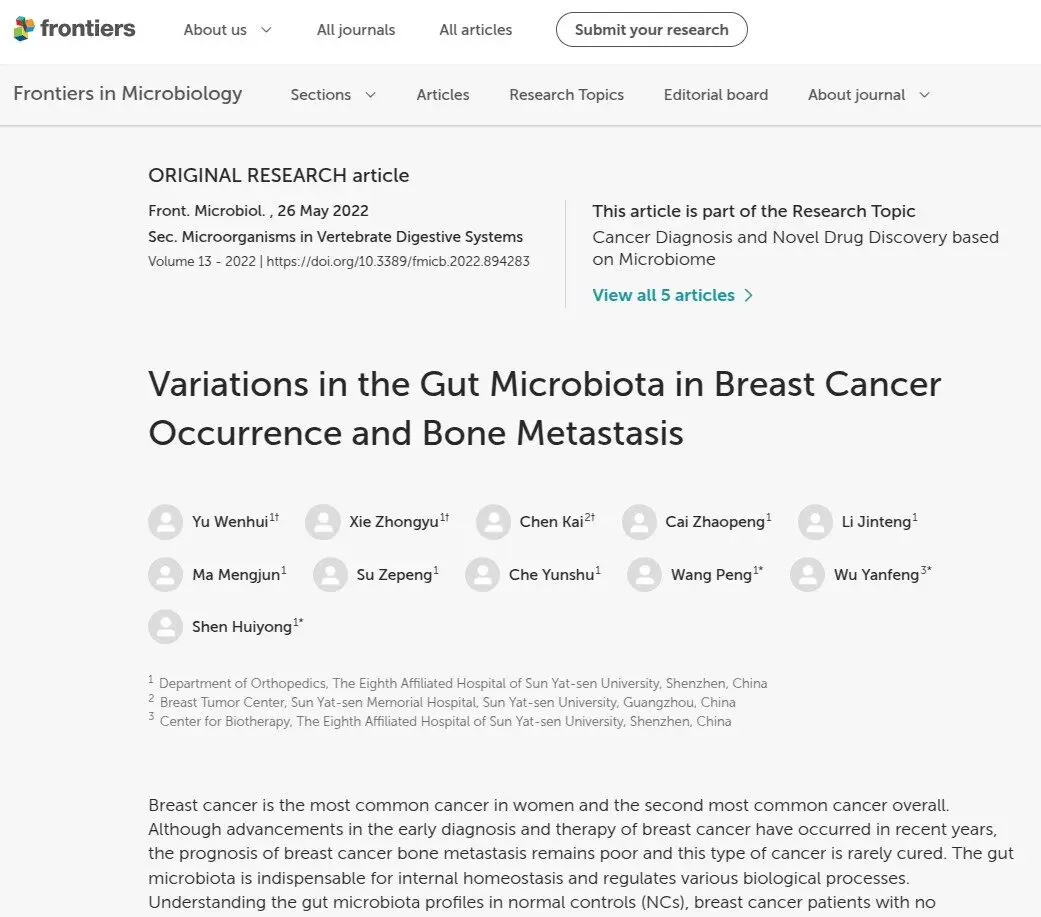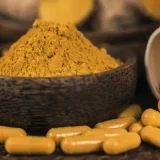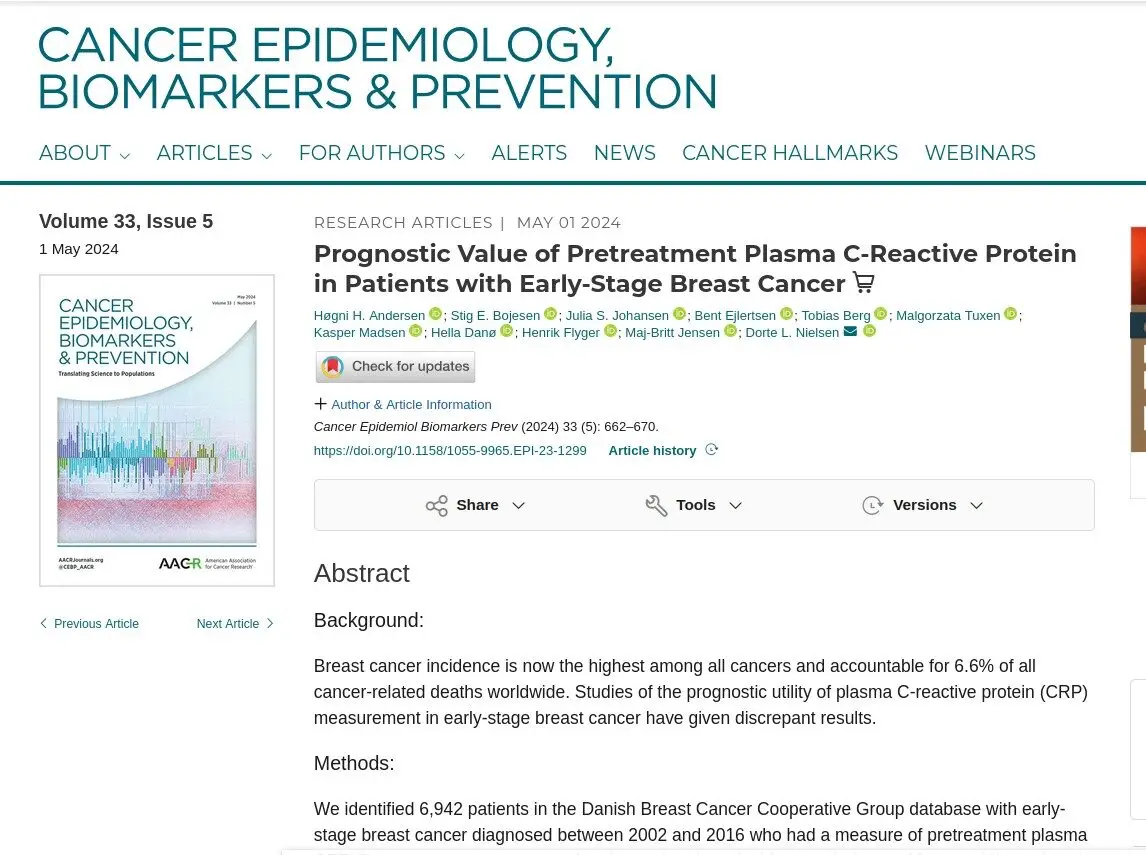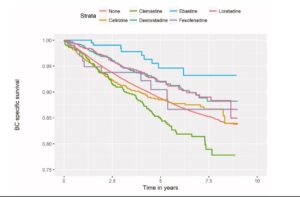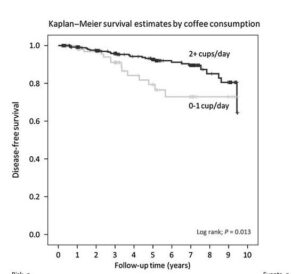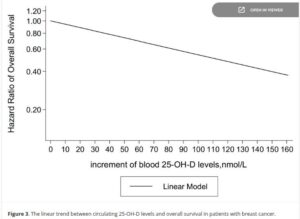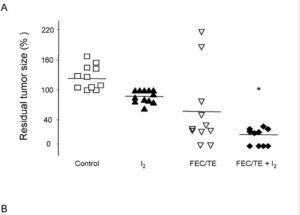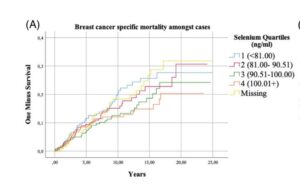Multiple supplements and functional foods have strong direct or indirect evidence of improving breast cancer treatment results. Overall the mechanisms frequently revolve around increased anti-tumor immune response, reduced treatment resistance and inflammation as well as balancing levels of crucial minerals and vitamins.
Studies of national patient records in Scandinavia have reported positively on the use of antihistamines. Desloratadine, loratadine and ebastine are highlighted in these studies as improving breast cancer outcomes, partly by reducing histamine related resistance to treatment. Overall evidence favoring interventions with antihistamines continues to mount, not least for supporting immunotherapy.
Similarly low dose aspirin and vitamin D3 also have growing evidence from case records of reducing progression and recurrence risks. At least one report confirming vitamin D3 improves relative survival rates 20 to 50% even for post-diagnosis use. Cancer activity, associated inflammation and drugs all deplete key nutrients such as D3.
These types of studies on the Tiawan national patient database for advanced breast cancer show much improved outcomes with use of danshen. A well researched and readily available herbal supplement, widely used in in asia to protect and re-balance immune system activity. Equally well proven astragalus can also restore immune system health, according to recent data using the well known neutrophil-to-lymphocyte ratio. This measure of immune related inflammation occurs commonly with cancer and during treatment, studies report lowering NLR reduces progression risks significantly.
Also reported in large scale studies of patient data for breast cancer, coffee consumption has surprising ability to reduce progression risk, in this data for ER+ tamoxifen treated patients in particular. The study shows caffeine inhibiting both estrogen and insulin growth factor receptors. Green coffee extract is also interesting since it contains far higher amounts of the active ingredients beyond caffeine. And another example from case records, prescription statin users that are “responders” for blood cholesterol control gain significant risk reduction in breast cancer.
Also from dietary sources soy consumption e.g as tofu has been linked to lowered recurrence and progression especially in postmenopausal patient groups. In other studies, progression risks are reduced with statins in the 20% range or higher. Even beyond 50% by the simultaneous use of low dose aspirin and anti-diabetics such as metformin. Being a “responder” applies to many compounds here, aspirin for instance has stronger effects in patients with systemic inflammatory diseases.
Less well known are emerging trials of functional foods based on oats and eggs that increase anti-inflammatory responses able to counter fluid pressure in tumors. In most solid tumors this physical barrier drives not only growth and metastatic spread, but also drug resistance. Selenium is proposed has having similar activity at high enough levels- see below. Breast cancer often increases its iron availability to fuel growth, shown by levels of enzyme like protein called ferritin. Low levels are linked with improved prognosis, whilst increasing levels are seen with metastasis, particularly to the liver. Conversely, iron deficiency is common and increases during therapy, linked with much higher progression risks. The prebiotic milk protein lactoferrin binds iron in the gut and regulates iron balance, homeostasis, and has its own evidence for anti-cancer activity. The same study highlights the benefits of lowering systemic inflammation c-reactive protein (CRP), indicating the importance of anti-inflammatory supplements and functional food diets.
The so called Th1/Th2 immune system balance is strongly linked to the progression and to treatment resistance. Molecular iodine solutions are emerging in this area in breast cancer management and seen boosting Th1 anti tumor activity and helping suppress over active Th2 used in resistance. The has improved results in surgery plus chemotherapy and may support increased response immunotherapy (see Supplement Library). For immunotherapy the presence of high sodium levels is now idenfied as a key marker for success in other cancers.
High levels of heavy metals like copper, especially with insufficient selenium and zinc, are linked with poor prognosis. The exact mechanism is still being clarified, but one possibility is cancer switches the metabolism to free up copper for its needs to grow and spread rapidly, and down regulates selenium. Heavy metal detoxification has been shown in patient case studies with use of citrus pectin, ideally with marine alginates from kelp. In kidney cancer, high dose selenium has been shown to allow oncology drugs to penetrate tumors much more effectively, and has ongoing clinical studies. Another mineral, iodine in its readily available solution form, has evidence of significantly improving outcomes. Both substantially lower risk levels for progression following surgery and chemotherapy and for reducing side effects especially for stage III.
Melatonin is being actively trialed to explore its quality of life benefits, and is reported at moderate to higher doses to slow progression for some patients. Melatonin might be a factor in the 40% or so increased response rates to immunotherapy, studied in other cancers, given in the morning vs afternoon, something to be aware of. Also new research, plant flavonoid luteolin has striking results in reducing androgen receptor activity in prostate cancer management, something also common in breast cancer. (see Supplements Library)
Lifestyle changes can impact recurrence and risk levels quite substantially. Both anti-inflammatory diets and structured exercise are increasingly reported to improve outcomes (see Lifestyle)
In repurposed drug trials, the combination of etodolac and propranolol is showing promise (see Repurposed Drugs)


